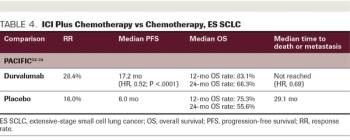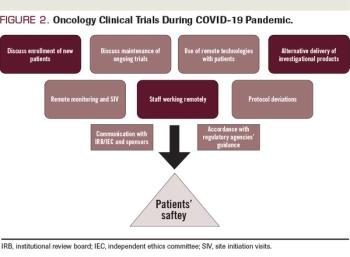
ABSTRACT Historically, platinum-based chemotherapy was the standard of care for metastatic lung cancer. However, since the success of immune checkpoint inhibitors (ICIs) in melanoma, PD-1/PD-L1 and CTLA-4 immune checkpoint pathways have been established as effective therapies to manage advanced non–small cell lung cancer (NSCLC) and extensive-stage (ES) small cell lung cancer (SCLC). Multiple large-scale randomized clinical trials have analyzed the effects of ICIs in NSCLC, and results of these trials have since translated to the approval of single-agent PD-1/PD-L1 inhibitors, and the combination of PD-1 inhibitors with platinum-based chemotherapy has become the new standard of care for patients with advanced NSCLC. Furthermore, in ES SCLC, in which chemotherapy or chemoradiation has been the standard of care for decades, 2 anti–PD-1/PD-L1 agents have been approved for use in the frontline setting for ES SCLC, in combination with chemotherapy. Despite progressive integration of immunotherapy into treatment regimens, there remains a need for reliable biomarkers to precisely determine therapy candidates.








